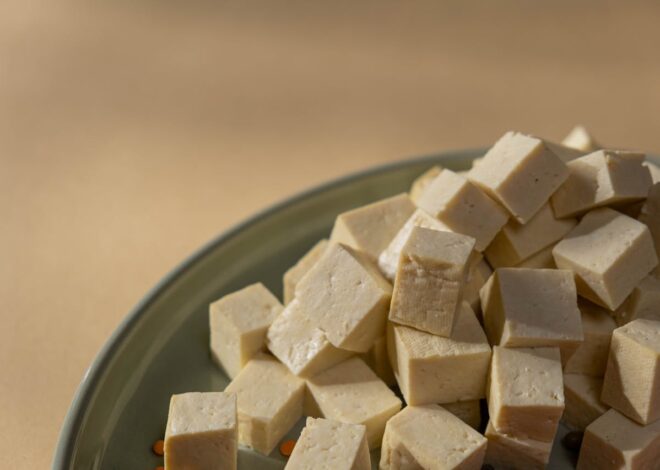
Cinnamon and Dogs: A Spicy Truth
Can Dogs Have Cinnamon? A Simple Guide for Pet Owners
Table of Contents [hide]
- 1 Can Dogs Have Cinnamon? A Simple Guide for Pet Owners
- 1.1 Is Cinnamon Safe for Dogs?
- 1.1.1 Benefits of Cinnamon for Dogs (When Used Right)
- 1.1.2 Risks of Giving Cinnamon to Dogs
- 1.1.3 How Much Cinnamon is Safe?
- 1.1.4 When to Avoid Cinnamon
- 1.1.5 What to Do if Your Dog Eats Too Much Cinnamon
- 1.1.6 Fun Ways to Add Cinnamon to Your Dog’s Diet
- 1.1.7 Safer Alternatives to Cinnamon
- 1.1.8 The Final Word: Is Cinnamon a Good Idea for Dogs?
- 1.1 Is Cinnamon Safe for Dogs?
As a dog owner, you’ve probably wondered if your furry friend can safely enjoy some foods and spices you love. Cinnamon, a common kitchen staple, often raises questions: Is it safe for dogs? Can it offer any benefits, or should it be avoided altogether? Let’s break it down in plain terms so you can make the best choice for your pup.

Is Cinnamon Safe for Dogs?
The good news is that cinnamon isn’t toxic to dogs. If your dog gets a tiny taste—maybe from something you dropped on the floor—it’s generally not a problem. But like most things, moderation is key. Too much cinnamon can cause issues, even though it’s not inherently dangerous.
Benefits of Cinnamon for Dogs (When Used Right)

Cinnamon has a few potential perks for dogs when given in small, controlled amounts:
- May Reduce Inflammation: Cinnamon contains compounds that could help ease inflammation, especially in older dogs with joint discomfort.
- Supports Cell Health: It’s rich in antioxidants, which protect the body from harmful free radicals.
- Helps Blood Sugar Levels: Some studies suggest that cinnamon might help regulate blood sugar, which could benefit diabetic dogs.
That said, most of these claims are based on human research. While some pet owners swear by cinnamon’s benefits, more studies are needed to confirm these effects in dogs.
Risks of Giving Cinnamon to Dogs
While a sprinkle of cinnamon might be harmless, too much can cause problems. Here are some risks to keep in mind:

- Irritation: Cinnamon can irritate a dog’s mouth or digestive system, leading to coughing, sneezing, or vomiting.
- Low Blood Sugar: Excessive amounts can drop blood sugar too far, causing dizziness or weakness.
- Liver Damage: Cassia cinnamon, a common type, contains coumarin, which can harm the liver if consumed in large amounts.
- Allergic Reactions: Like humans, dogs can have allergies. Call your vet if your dog shows signs like itching, swelling, or difficulty breathing after eating cinnamon.
How Much Cinnamon is Safe?
If you want to share a little cinnamon with your dog, stick to these basic guidelines:
- Small Dogs: No more than 1/8 teaspoon per day.
- Medium to Large Dogs: Up to 1/2 teaspoon per day.
- Always Choose Ceylon Cinnamon: It’s a better option for dogs because it has lower levels of coumarin.
Sprinkle cinnamon lightly on your dog’s food, or use it in homemade treats. Avoid feeding cinnamon sticks, as they’re a choking hazard.
When to Avoid Cinnamon
Not all dogs are good candidates for cinnamon, even in small amounts. Avoid it if:
- Your dog has liver disease or a health condition that affects metabolism.
- Your dog is pregnant or nursing, as their systems can be more sensitive.
- You’re feeding a young puppy, as their digestive systems are still developing.
- Your dog is already on medications for diabetes or blood pressure—cinnamon might interfere with their effects.
What to Do if Your Dog Eats Too Much Cinnamon

Accidents happen! If your dog gets into a container of cinnamon or eats too much by mistake, keep an eye out for these symptoms:
- Vomiting or diarrhea
- Coughing or choking
- Weakness or dizziness
- Tremors or seizures (in rare cases)
If you notice any of these signs, don’t wait. Call your veterinarian or a pet poison helpline for guidance.
Fun Ways to Add Cinnamon to Your Dog’s Diet
If your vet gives the green light, cinnamon can add a fun twist to your dog’s meals or treats. Here are a few safe ways to try it out:
- Homemade Dog Treats: Add a pinch of cinnamon to your dog’s favorite biscuit recipe.
- Food Topper: Sprinkle a small amount on top of their kibble for a hint of flavor.
- Holiday Treats: Use it in pumpkin or peanut butter-based snacks as a festive touch.
Always start small and watch for signs that your dog might not tolerate it well.
Safer Alternatives to Cinnamon
If you’re hesitant about giving cinnamon, there are plenty of other dog-safe options to spice things up:
- Pumpkin: Great for digestion and packed with nutrients.
- Ginger: Helps with nausea and can settle an upset stomach (in very small amounts).
- Parsley: A natural breath freshener that is good for digestion.
- Turmeric: Known for its anti-inflammatory properties, it is especially helpful for joint health.
The Final Word: Is Cinnamon a Good Idea for Dogs?
Cinnamon can be a safe and tasty addition to your dog’s diet if used sparingly and appropriately. While it may offer a few health benefits, it’s not a magic cure-all. The key is moderation and paying close attention to how your dog reacts.
Always consult your vet before introducing new foods or spices, especially if your dog has existing health conditions. When in doubt, err on caution—your pup’s health and happiness are worth it!


